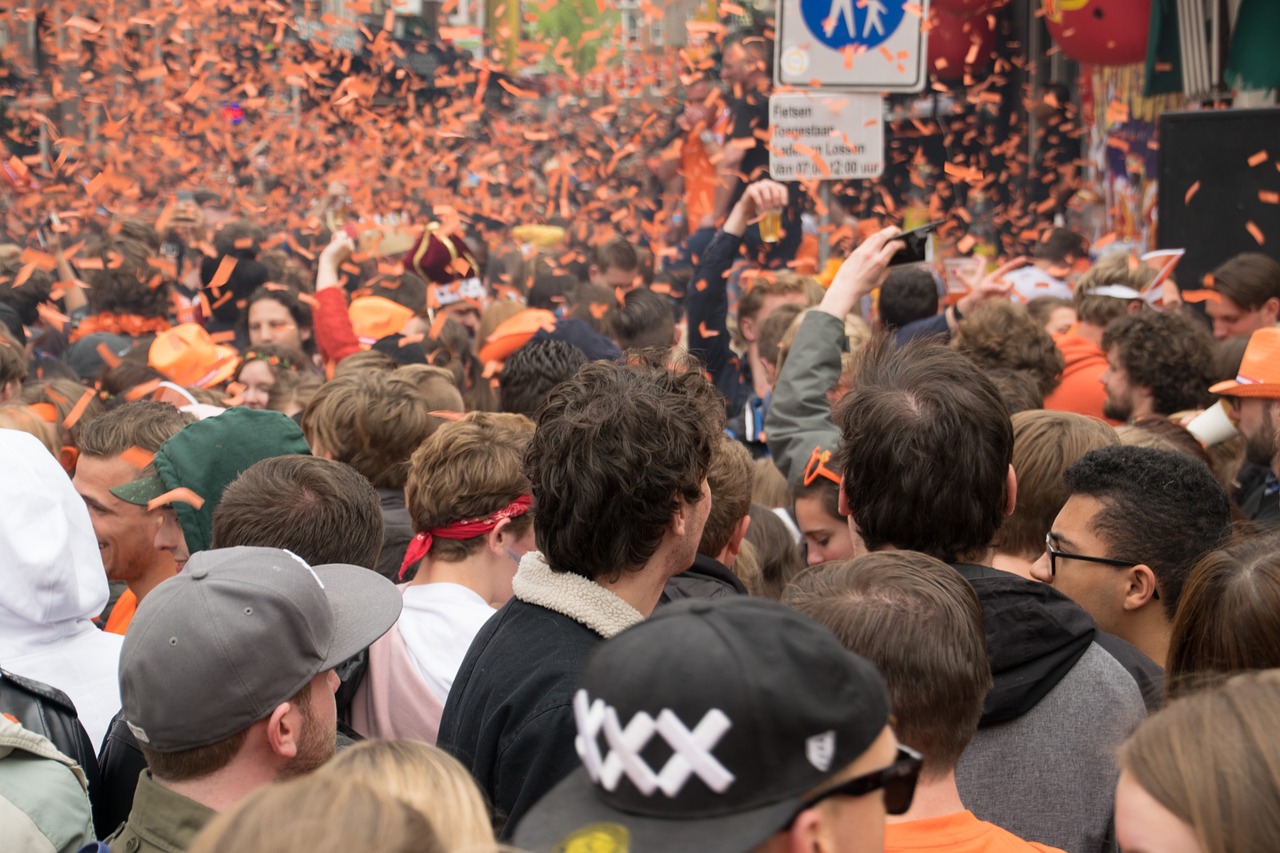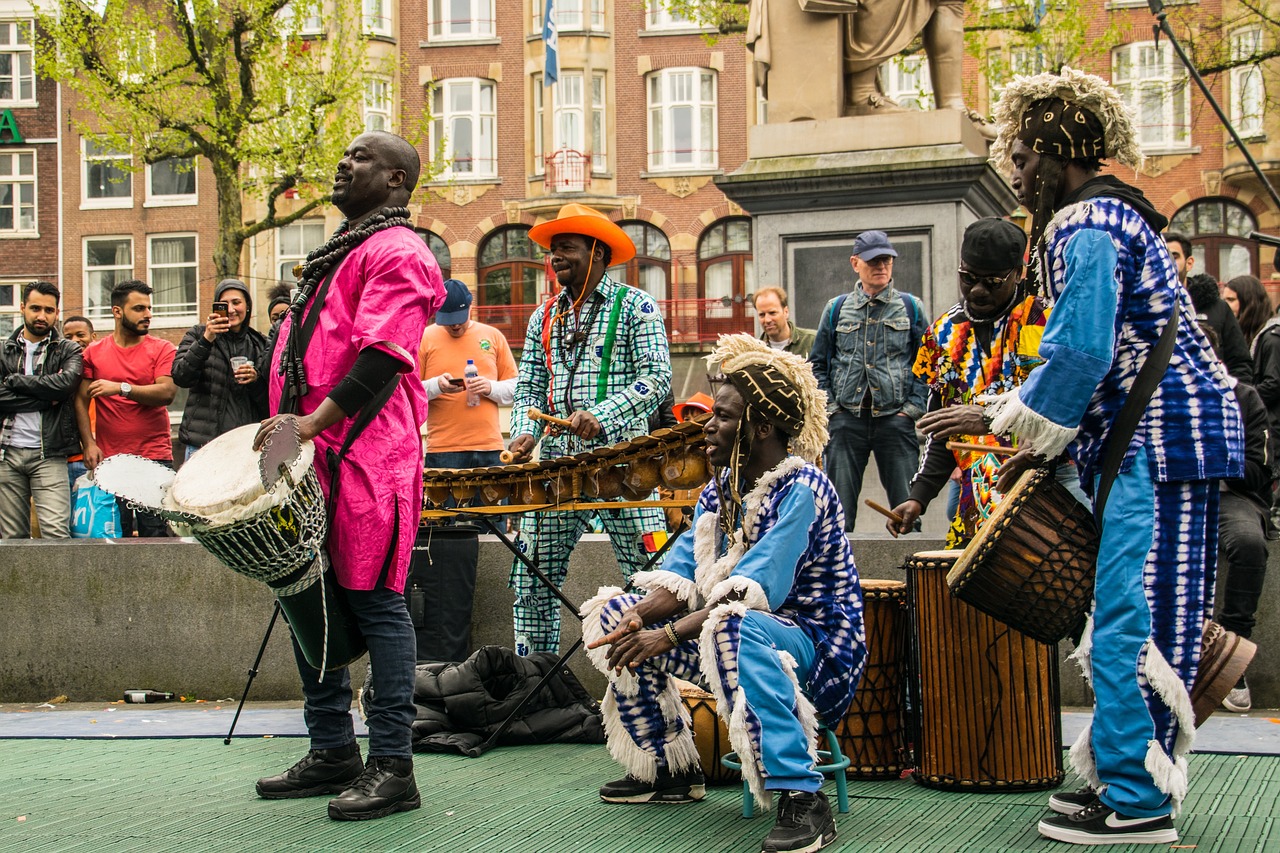France's Bastille Day - A Symbol of National Pride
France's Bastille Day, celebrated on July 14th each year, holds a special place in the hearts of the French people as a symbol of national pride and unity. This historic day commemorates the storming of the Bastille prison on July 14, 1789, a significant event that marked the beginning of the French Revolution and the fight for liberty and equality.
The traditions and significance of Bastille Day go beyond just historical remembrance; they embody the core values of the French nation. The day is filled with celebrations, parades, fireworks, and cultural events that bring people together in a spirit of solidarity and patriotism. It serves as a reminder of the resilience and unity of the French people in the face of adversity.
One of the key aspects of Bastille Day is its symbolism. It represents the fundamental principles of liberty, equality, and fraternity that are deeply ingrained in French society. This national holiday not only honors the past but also serves as a beacon of hope for the future, inspiring generations to uphold these values and strive for a better tomorrow.
Moreover, Bastille Day is not just confined to France; it has a global presence and influence. Countries around the world celebrate this day to pay tribute to French culture, history, and the ideals of the French Revolution. It serves as a reminder of the universal struggle for freedom and human rights.
As Bastille Day continues to evolve in the 21st century, it faces new challenges and opportunities. The celebrations may change with time, but the essence of this day remains constant – a testament to the enduring spirit of the French people and their commitment to democracy and inclusivity.

History of Bastille Day
The history of Bastille Day dates back to one of the most significant events in French history - the French Revolution. On July 14, 1789, the people of Paris stormed the Bastille prison, a symbol of the monarchy's tyranny and oppression. This event marked the beginning of the revolution and the fight for liberty, equality, and fraternity in France.
The storming of the Bastille was a pivotal moment that symbolized the French people's determination to overthrow the feudal system and establish a more just and democratic society. The fall of the Bastille not only represented the physical liberation of prisoners but also the symbolic victory of the people over the oppressive regime.
Following the storming of the Bastille, the French Revolution brought about sweeping social and political changes, leading to the abolition of feudal privileges, the declaration of the Rights of Man and of the Citizen, and the rise of the Republic. Bastille Day, or "La Fête Nationale," was officially declared a national holiday in France in 1880 to commemorate the revolution and celebrate the values of freedom and democracy.

Celebrations and Festivities
When it comes to celebrating France's Bastille Day, the festivities are nothing short of spectacular. The French people come together in a display of national pride and unity, commemorating the historic events that shaped their country. One of the most iconic traditions is the grand military parade that takes place on the Champs-Élysées in Paris. This parade showcases France's military strength and pays tribute to the country's history and heritage.
Fireworks light up the night sky across France, illuminating the streets and bringing a sense of excitement and joy to the celebrations. Families and friends gather for picnics and parties, enjoying traditional French cuisine and raising a toast to liberty and fraternity. The air is filled with music, laughter, and the sound of clinking glasses as people come together to honor their shared values and beliefs.
Throughout the day, public gatherings and cultural events take place in towns and cities across France. From art exhibitions to street performances, Bastille Day is a time to celebrate the richness and diversity of French culture. People of all ages participate in the festivities, creating a vibrant and lively atmosphere that captures the essence of the French spirit.
One of the highlights of Bastille Day is the sense of community and togetherness that pervades the celebrations. It is a time for reflection, remembrance, and renewal, as the French people pay homage to their past while looking towards the future. The day is not just a commemoration of history but a reaffirmation of the values that define the nation and its people.

Symbolism of Bastille Day
Symbolism of Bastille Day runs deep within the heart of France, embodying the core values of liberty, equality, and fraternity that are fundamental to the French identity. The significance of this national holiday goes beyond historical remembrance; it serves as a powerful symbol of unity, resilience, and the enduring spirit of the French people.
Just as the storming of the Bastille prison represented the overthrow of tyranny and the fight for freedom during the French Revolution, Bastille Day today stands as a testament to the unwavering commitment to democracy and human rights. It symbolizes the triumph of the people over oppression and injustice, highlighting the importance of standing together in the face of adversity.
Moreover, Bastille Day reflects the cultural richness and diversity of France, celebrating the country's heritage and traditions while embracing modern values of inclusivity and solidarity. It serves as a reminder of the shared history that unites the French nation and inspires a sense of pride in its achievements and progress towards a more egalitarian society.
Through its symbolism, Bastille Day encourages reflection on the past, appreciation of the present, and hope for the future. It reminds us of the sacrifices made by those who fought for freedom and democracy, urging us to uphold these ideals and work towards a better tomorrow for all. In essence, Bastille Day is not just a date on the calendar; it is a symbol of hope, unity, and the enduring spirit of the French people.

Traditional Foods and Cuisine
When it comes to celebrating Bastille Day in France, one cannot ignore the delectable array of traditional foods and cuisine that accompany this festive occasion. French gastronomy is renowned worldwide for its exquisite flavors, rich textures, and culinary finesse, making Bastille Day a true feast for the senses.
One of the most iconic French pastries enjoyed during Bastille Day celebrations is the croissant, a buttery and flaky pastry that pairs perfectly with a cup of aromatic coffee or hot chocolate. The éclair, another beloved pastry, filled with creamy custard and topped with glossy chocolate glaze, is also a popular choice for indulging in sweet treats.
When it comes to savory delights, cheeses play a prominent role in Bastille Day festivities. From creamy Brie and tangy Roquefort to nutty Comté and delicate Camembert, French cheeses offer a diverse range of flavors to suit every palate. Pairing these cheeses with crusty baguettes and fresh fruits creates a delightful cheese platter that is a staple at Bastille Day gatherings.
No French celebration is complete without a glass of wine, and Bastille Day is no exception. France's renowned wine regions produce a variety of wines, from crisp Chardonnays to full-bodied Bordeaux blends, providing the perfect accompaniment to the festive atmosphere. Toasting with a glass of Champagne adds a touch of elegance to the celebrations, symbolizing the spirit of joy and camaraderie.
Traditional French dishes also take center stage during Bastille Day, with classics such as coq au vin (chicken braised in red wine), ratatouille (a vegetable stew), and boeuf bourguignon (beef stewed in red wine) gracing the tables of families and friends. These hearty and flavorful dishes reflect the rustic charm and culinary heritage of France, inviting everyone to savor the essence of French cuisine.

Global Observance and Influence
France's Bastille Day, beyond being a national celebration, holds significant influence globally, with various countries acknowledging and honoring French culture, history, and the enduring impact of the French Revolution. The spirit of liberty, equality, and fraternity that Bastille Day embodies resonates with people worldwide, symbolizing the universal values of freedom and democracy.
Many nations pay tribute to Bastille Day through diplomatic events, cultural exhibitions, and educational programs that showcase French heritage and ideals. French embassies and consulates organize receptions and galas, inviting dignitaries and diplomats to commemorate the occasion and strengthen international ties.
Furthermore, French expatriate communities around the world actively participate in Bastille Day festivities, organizing street parties, concerts, and art exhibitions that promote French art, cuisine, and traditions. These celebrations serve as a bridge between different cultures, fostering mutual understanding and appreciation for France's rich cultural heritage.
Moreover, Bastille Day's influence extends to the realm of politics and diplomacy, with world leaders acknowledging the historical significance of the French Revolution and its impact on global governance. The principles championed during the revolution, such as human rights, democracy, and social justice, continue to shape international relations and inspire movements for change and reform.

Impact on French Society
France's Bastille Day holds a profound impact on French society, serving as a cornerstone of national identity and unity. The celebration of Bastille Day plays a vital role in fostering a sense of pride and solidarity among the French populace, transcending social and cultural divides. It symbolizes the resilience and determination of the French people, reminding them of their shared history and the values of liberty, equality, and fraternity that form the foundation of their society.
Through commemorating Bastille Day, the French society reaffirms its commitment to democracy, inclusivity, and diversity. The festivities and traditions associated with this national holiday bring people together, bridging differences and promoting a sense of belonging to a larger community. It is a moment of reflection on the past struggles and achievements that have shaped the country's social fabric and collective consciousness.
Moreover, Bastille Day has a significant impact on shaping the cultural landscape of France, influencing art, literature, music, and various forms of expression. It serves as a source of inspiration for creativity and innovation, fueling a sense of national pride that transcends borders and resonates with people around the world. The celebration of Bastille Day reflects the dynamism and vibrancy of French society, showcasing its rich heritage and contemporary relevance in a global context.

Political and Historical Significance
When delving into the of Bastille Day, it becomes evident that this annual celebration is not merely a day of fireworks and festivities, but a profound reflection of France's commitment to democratic principles and social justice. The roots of Bastille Day lie in the French Revolution, a tumultuous period marked by the fight against tyranny and the quest for equality. The storming of the Bastille prison on July 14, 1789, symbolized the triumph of the people over oppression and sparked a series of events that would shape the course of French history.
Throughout the years, Bastille Day has evolved into a symbol of France's enduring dedication to human rights, liberty, and equality. It serves as a reminder of the sacrifices made by those who fought for freedom and democracy, paving the way for the modern French society we see today. The celebration of Bastille Day is not just a commemoration of past events but a reaffirmation of the values that underpin the French Republic.
On a political level, Bastille Day holds significant importance as it underscores France's unwavering commitment to upholding democratic ideals and promoting social cohesion. The annual military parade on the Champs-Élysées showcases France's military strength and unity, sending a powerful message of national pride and solidarity. It is a moment for the French government to reaffirm its dedication to protecting the rights and freedoms of its citizens, both at home and abroad.
Moreover, Bastille Day serves as a platform for reflecting on the challenges and progress made in French society. It prompts discussions on issues of social justice, inclusion, and diversity, encouraging citizens to engage with their shared history and envision a more equitable future. The celebration of Bastille Day is not just a historical remembrance but a call to action, urging individuals to uphold the values of the French Revolution in their daily lives.

Future of Bastille Day Celebrations
Bastille Day, a cherished national holiday in France, has a rich history and deep symbolism that resonate with the French people. Looking ahead, the future of Bastille Day celebrations holds both challenges and opportunities as France navigates the complexities of the 21st century. As society evolves and cultural dynamics shift, the traditional festivities of Bastille Day may undergo transformations to stay relevant and engaging for future generations.
One aspect of the future of Bastille Day celebrations lies in the preservation of its historical legacy while adapting to modern tastes and preferences. As French society modernizes, there is a need to balance honoring the past with embracing contemporary values and interests. This delicate balance will shape how Bastille Day is celebrated in the years to come, ensuring that it remains a vibrant and meaningful occasion for all.
Furthermore, the future of Bastille Day may witness a greater emphasis on sustainability and environmental consciousness. With growing global awareness of climate change and ecological issues, there is a push towards eco-friendly practices in all aspects of life, including cultural celebrations. Incorporating green initiatives into Bastille Day festivities could be a step towards a more environmentally responsible and socially conscious event.
Additionally, as technology continues to advance at a rapid pace, the future of Bastille Day celebrations may see the integration of digital innovations to enhance the overall experience. Virtual reality tours of historical sites, interactive online events, and social media campaigns could offer new ways for people to participate in and engage with the spirit of Bastille Day, transcending physical boundaries and reaching a wider audience.
In conclusion, the future of Bastille Day celebrations holds promise for innovation, inclusivity, and sustainability. By embracing change while honoring tradition, France can ensure that this iconic holiday remains a symbol of national pride and unity for generations to come.
Frequently Asked Questions
- What is the significance of Bastille Day?
Bastille Day is a symbol of unity, freedom, and national pride for the French people. It commemorates the storming of the Bastille prison on July 14, 1789, a key moment in the French Revolution that represents the values of liberty, equality, and fraternity.
- How is Bastille Day celebrated in France?
Bastille Day is celebrated with military parades, fireworks displays, public gatherings, and cultural events across the country. It is a day of national pride and solidarity, where the French people come together to honor their history and values.
- What are some traditional foods associated with Bastille Day?
French pastries, wines, cheeses, and traditional dishes are enjoyed during Bastille Day celebrations. These culinary delights reflect the rich gastronomic heritage of France and add to the festive atmosphere of the day.
- How does Bastille Day impact French society?
Bastille Day plays a crucial role in shaping modern French identity by fostering national unity, pride, and cultural diversity. It serves as a reminder of the French people's resilience and commitment to democracy, promoting inclusivity and solidarity.
- Why is Bastille Day significant beyond France's borders?
Bastille Day is celebrated globally as a tribute to French culture, history, and the ideals of the French Revolution. Many countries hold events to honor France's enduring legacy and its contributions to democracy and human rights.



















